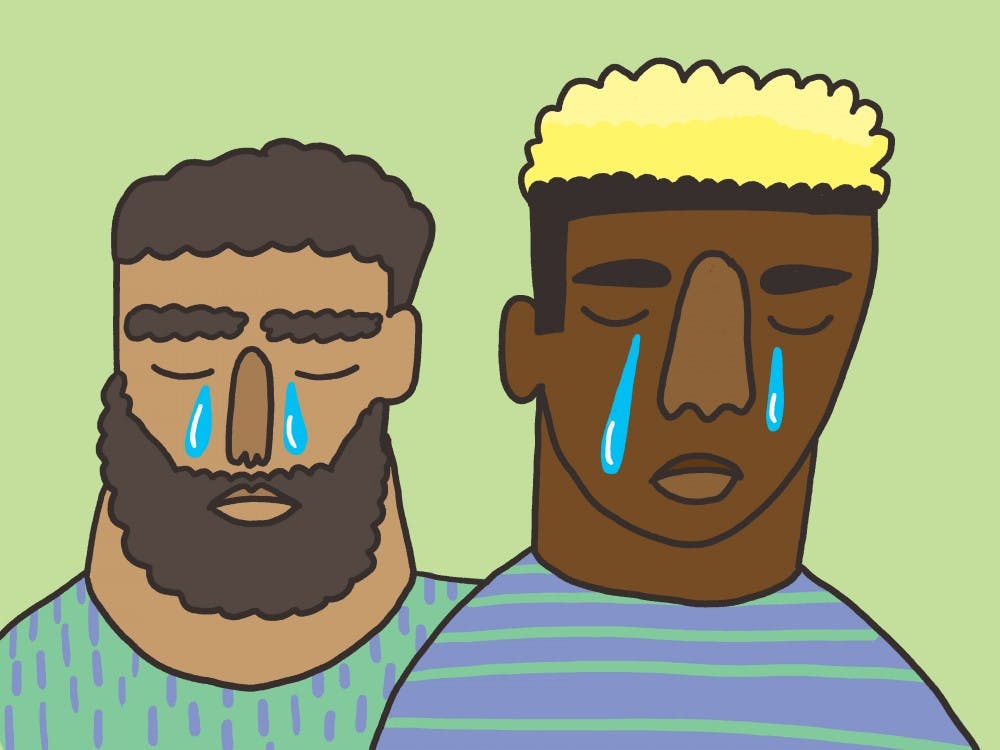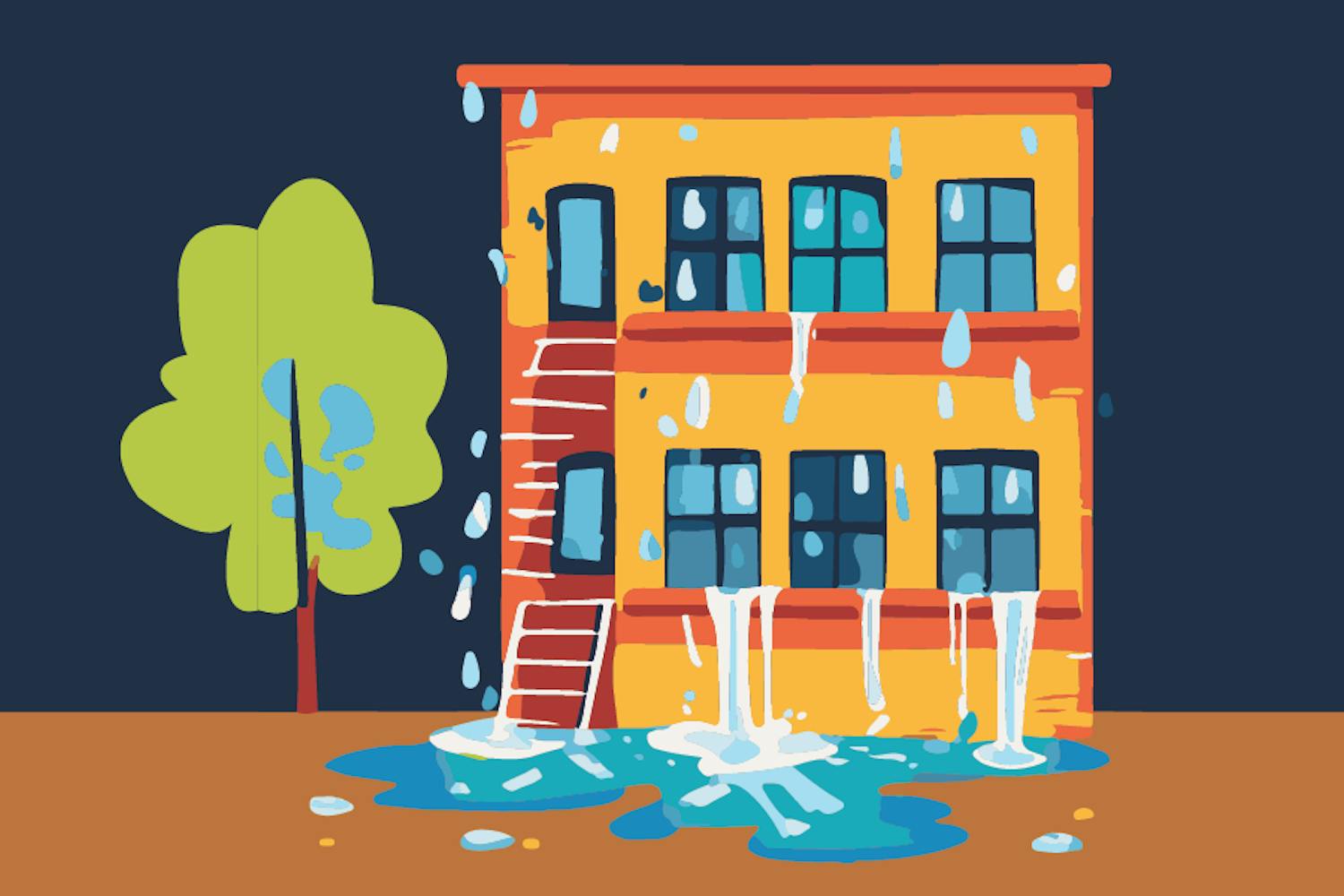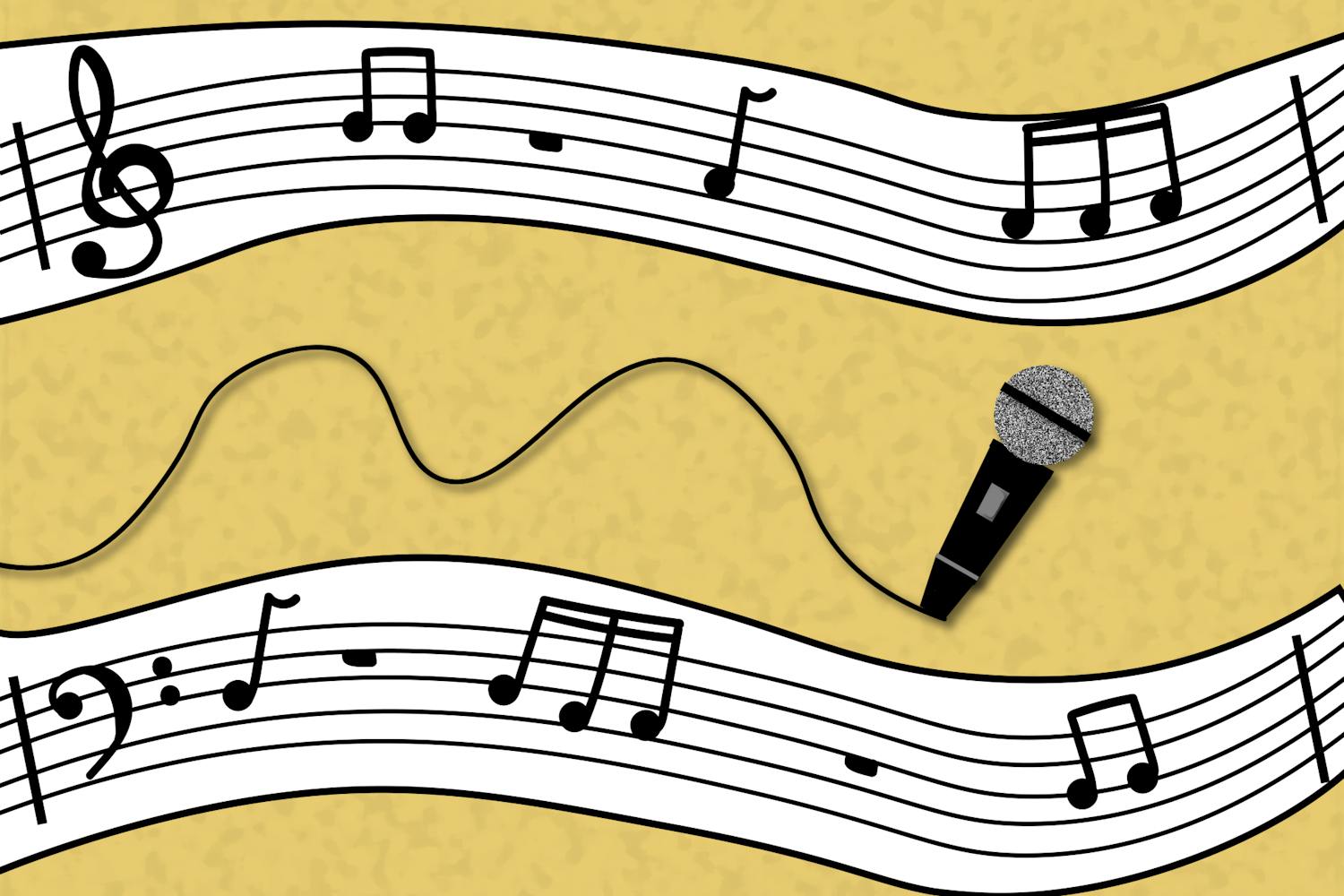The semester is quickly coming to an end, which means that finals are right around the corner.
In times like this we are faced with two choices: We can face our problems and prove to the world that college is helping us transition from teens to adults, or, if you are like me, you can have a complete and utter breakdown and cry yourself to sleep for the remainder of the semester.
As a junior I have now completed almost five semesters at ASU and have had meltdowns each time finals week rolls around, all of which have led to me crying.
And I am not talking about a constrained, dignified cry like Clark Gable in "Gone with the Wind." These meltdowns are more like Jason Segel's in "Forgetting Sarah Marshall."
Now I would love to have this article be all about the best and worst places on campus to cry, (the best place is any stairwell in the Matthews Center and the worst is on the light rail), but there is a bigger problem to address. The identity of mental and emotional health are changing.
We have a come long way in the acceptance of men crying. First, we no longer shun all politicians who cry. In fact, we now have a long history of crying leaders. Both former President Barack Obama and Vice President Joe Biden cried frequently during the previous administration — the public did not respond as negatively to this sign of emotion as it has in the past.
And it’s not just Liberals who cry, former Speaker of the House John Boehner cried all the time.
But lately I have noticed a startling trend of people calling for men to be manly again. Apparently this means that men need to start throwing axes, drinking beers and high-fiving anything that remotely looks like a hand while some sports game blares in the background.
While this may seem hyperbolic, the public is actually feeding into this idea. Currently our government is starting to look and feel more like a boy’s club each day that passes.
It is not just the government which is still struggling to overcome the idea that men need to be manly. According to Aaron Krasnow, associate vice president of ASU Counseling Services and Health Services, men still have trouble overcoming the stigma surrounding mental and emotional health.
Although great strides have been made, "women are still more likely to seek out counseling," Krasnow said.
What many seem to overlook is the fact that men are overwhelmingly afflicted by mental health issues — 75 percent of suicide victims are men, and every 20 minutes a man kills himself in the U.S. These are staggering statistics that should encourage us to rethink our stereotypes surrounding men and mental health.
Men may be silently struggling with their mental health but that is why there are people on campus dedicated to counseling students.
Luckily for you and unluckily for me, I found this out first-hand this week. The stress of writing an article about something so personal coupled with the stress of finals helped to trigger my annual end-of-the-year depression.
I am happy to say that I have not cried on the light rail — yet. Instead I did something that I may be even harder to admit but may be healthier in the long-term — I called the EMPACT 24-hour crisis hotline, which in my opinion is a bit of misnomer.
The hotline is not just for life-threatening crises. Instead, it is more like a hotline for any student suffering from mental health or emotional problems who cannot reach the counseling offices.
Having never needed to do this before, I was more than a bit worried about how my call would go. I am happy to say that like many of the other services offered at ASU, the counseling department excels at making students feel welcome. The person on the other end of the phone listened without ever trying to kick me off the line. They then offered sound advice on how to cope and move forward.
So as the stress of life seems to be coming to a head for some of us, it is important to remember that it is perfectly normal and acceptable to feel overwhelmed, even if you are a male.
It is also important to remember that you always have a person who is willing to listen and help you if you need it.
Reaching out does not make you weak, it makes you human.
Reach the columnist at agrafil@asu.edu or follow @alecgrafil on Twitter.
Editor’s note: The opinions presented in this column are the author’s and do not imply any endorsement from The State Press or its editors.
Want to join the conversation? Send an email to opiniondesk.statepress@gmail.com. Keep letters under 500 words and be sure to include your university affiliation. Anonymity will not be granted.
Like The State Press on Facebook and follow @statepress on Twitter.




